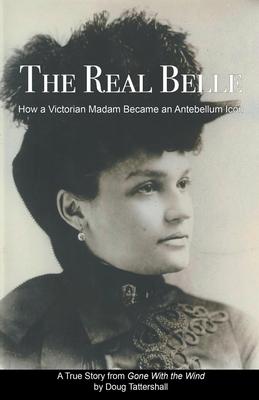When author Margaret Mitchell needed a hardscrabble woman to serve as confidante to Rhett Butler, her husband told her about Belle Brezing, the Victorian madam of a famous brothel in Lexington, Kentucky. Brezing entered Mitchell's novel as Belle Watling, but the real Belle's life story is as dramatic as anything to be found in the pages of "Gone With the Wind." Brezing was born illegitimate, raised in poverty in a violent home, and cast off at 15 after her mother's funeral, with a baby in her arms and her door padlocked by the landlord. From this desperate childhood, Brezing became rich and famous, operating what Time magazine called the "most orderly of disorderly houses." The city's famous horse racing meets helped make her brothel known nationwide, but behind her success was a determination to provide for her daughter and see that she never saw the inside of a brothel nor was ever mistreated by a man. Brezing was known as someone who distributed much of her wealth to needy folks out the side door of her famous house and for raising vice in her hometown to the level of haute couture. By the time Brezing died in 1940, decades of local folklore and the success of "Gone With the Wind" helped generate a massive crowd at the auction of her household items. She has been the subject of historic preservation movements and theatrical plays and has had her name on a light beer, a gay bar, and an annual bed race. But despite the iconic and bawdy image in her hometown, her story is a more human one. The visits of her doctor, university book collectors, the city's only female police officer, and her priest offer glimpses into the years of seclusion at the end of her life, revealing how she reconciled her sorrowful childhood and her raucous career.

The Real Belle: How a Victorian Madam Became an Antebellum Icon
When author Margaret Mitchell needed a hardscrabble woman to serve as confidante to Rhett Butler, her husband told her about Belle Brezing, the Victorian madam of a famous brothel in Lexington, Kentucky. Brezing entered Mitchell's novel as Belle Watling, but the real Belle's life story is as dramatic as anything to be found in the pages of "Gone With the Wind." Brezing was born illegitimate, raised in poverty in a violent home, and cast off at 15 after her mother's funeral, with a baby in her arms and her door padlocked by the landlord. From this desperate childhood, Brezing became rich and famous, operating what Time magazine called the "most orderly of disorderly houses." The city's famous horse racing meets helped make her brothel known nationwide, but behind her success was a determination to provide for her daughter and see that she never saw the inside of a brothel nor was ever mistreated by a man. Brezing was known as someone who distributed much of her wealth to needy folks out the side door of her famous house and for raising vice in her hometown to the level of haute couture. By the time Brezing died in 1940, decades of local folklore and the success of "Gone With the Wind" helped generate a massive crowd at the auction of her household items. She has been the subject of historic preservation movements and theatrical plays and has had her name on a light beer, a gay bar, and an annual bed race. But despite the iconic and bawdy image in her hometown, her story is a more human one. The visits of her doctor, university book collectors, the city's only female police officer, and her priest offer glimpses into the years of seclusion at the end of her life, revealing how she reconciled her sorrowful childhood and her raucous career.